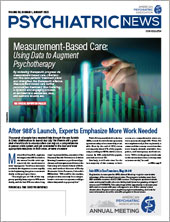In the course of her work with unaccompanied children, Leecia Welch, J.D., met a 13-year-old who had fled his home country with his 6-year-old sister and 10-year-old aunt. When the child was 7 years old, his stepfather had murdered his mother. “I went to live with my grandmother, but my life was very difficult, and I feared I would be killed if I stayed there,” he told Welch.
“Unfortunately, his trauma continued upon his arrival to the United States,” said Welch, the deputy legal director with Children’s Rights. “After making up a story about hurting someone in his home country, he was separated from his sister without even getting to say goodbye in the middle of the night and flown, shackled and alone, from New York to California.” He was placed in a juvenile detention facility with older and larger children.
The facility soon realized he had no business being there, Welch said, and he was flown back to New York. “But the trauma of the separation from his sister and the incarceration seriously exacerbated his mental health symptoms and needs, which are already significant due to the loss of his mother,” Welch said.
Welch presented at the American Academy of Child and Adolescent Psychiatry’s 2022 annual meeting in Toronto during a session about the mental health needs of migrant children, adolescents, and their families. During the session, experts outlined the multiple traumas and stressors that unaccompanied youth experience before, during, and after their journeys across the southern U.S. border and focused on the various ways that child and adolescent psychiatrists can lend their expertise to support these youth.
Decades ago, people who crossed the border between the United States and Mexico were typically single men looking for employment, explained Suzan Song, M.D., Ph.D., M.P.H., director of the Division of Child/Adolescent and Family Psychiatry at George Washington University Medical Center and a humanitarian protection consultant. Now, many of those entering this country are children and families. CBS News reported in October that nearly 130,000 migrant children entered the United States in fiscal year 2022, a new record.
After completing their oftentimes harrowing journeys to the United States, unaccompanied youth are met with significant challenges in the legal system that can further worsen their mental health, Song explained. For example, an unaccompanied child who is seeking asylum has to prove persecution on one of the five protected grounds of asylum: race, religion, nationality, political, or social membership. “Children have to meet the same standard of evidence of fear or persecution as adults do,” Song said. “But developmentally, children struggle to categorize their experiences into legal frameworks.”
Children must prove that their countries’ governments were not willing to protect them, “putting an undue and developmentally inappropriate burden on the children,” Song said.
During their presentations, experts often focused on how child and adolescent psychiatrists can support unaccompanied youth. The question was again posed during the question-and-answer session, highlighting the urgency that many attendees felt, especially after learning about the numerous traumas youth experience before, during, and after their journeys across the border.
“Everyone is saying, ‘How can I help? What can I do once they’re in the detention centers, or before, or once they’re in the community?’ ” said Lisa Fortuna, M.D., M.P.H., a professor of clinical psychiatry and vice chair at the University of California San Francisco Department of Psychiatry and Behavioral Sciences and Weill Institute for Neurosciences.
Psychiatrists need to focus on outreach to those in the community who are working directly with these populations, whether to provide basic needs like water or shelter or to provide legal assistance, Song said.
From the legal perspective, there are many ways child and adolescent psychiatrists can help, Welch said. Many are already providing critical expert testimony in cases involving unaccompanied children, and such expertise is still needed in a variety of cases. They can play a positive role in supporting these youth in other ways as well, such as training those who work with unaccompanied children in trauma-informed care, providing services to youth in the community once they are reunited with their families, and support advocacy for more comprehensive protections for immigrant children.
“What we’ve seen in recent years is that intersection of the legal world and the mental health world and how intertwined they really are,” Song said. “The more that we can work with and support lawyers in doing their work, the more we can relieve some of the burdens on the children and their mental health.” ■

